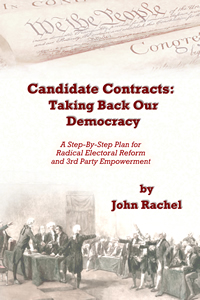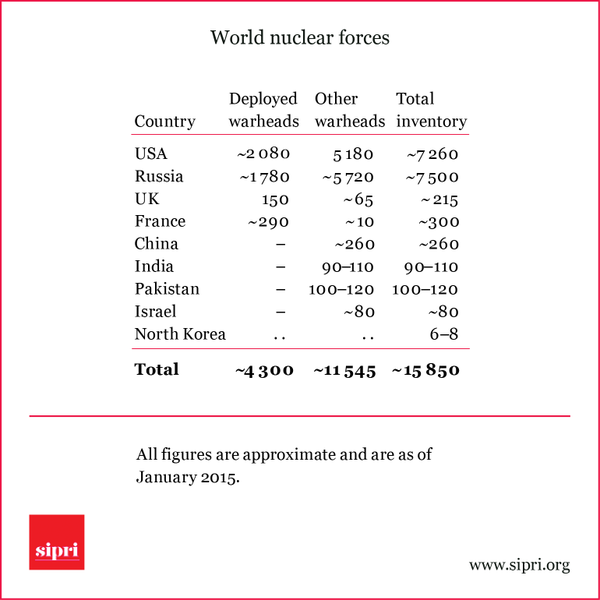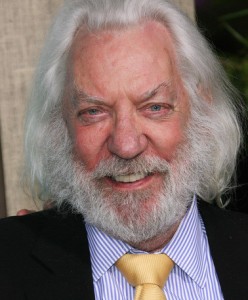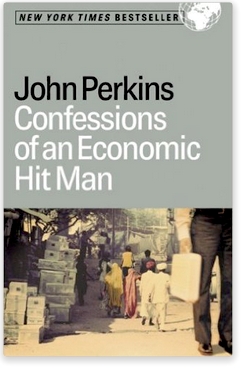 In my last posting, I proposed that we as voters demand that Bernie Sanders make a clear, firm commitment toward less military, less war, less imperial misadventure, less of much that goes on in the name of “defense of the homeland”, specifically those items which are bankrupting our country and making the U.S. the enemy of the world.
In my last posting, I proposed that we as voters demand that Bernie Sanders make a clear, firm commitment toward less military, less war, less imperial misadventure, less of much that goes on in the name of “defense of the homeland”, specifically those items which are bankrupting our country and making the U.S. the enemy of the world.
Many of his supporters predictably rallied to his defense and directed me to a recent document which appears on the web site of the esteemed senator.
All well and good. I’m glad Bernie Sanders recognizes the need to “answer” to the people and explain where he stands on things.
Without getting into a lot of specifics here — I may do that in a future posting — his policy statement certainly leaves a lot of room for interpretation. It’s intentionally vague. It is the kind of public relations-oriented piece which we’ve come to expect of other lesser men and women but is not at all flattering to a self-described socialist who has taken admirable stands on many other issues. It is fraught with the sort of sweeping, noble-sounding but non-committal declarations that allowed Mr. Sanders to vote, for example, against the War in Iraq but for funding that very same war in defense appropriations bills.
Maybe that’s fine for some people but I think we should expect more.
If the country is not to be further bankrupted by endless war, then nice-sounding feel-good assurances will not cut it. We need specifics. We need details. We need accountability.
Among other things, we need to demand of Mr. Sanders and any candidate who claims to have the interests of the U.S. at heart: ending the illegal war crime of bombing countries with drones, which is just recruiting more terrorists and swelling the ranks of jihadists; closing most of the 900+ bases around the world; ending the confrontations with Russia and China; closing Guantanamo and all of the other “black sites” where we torture; firing the neocons who infect our government and foreign policy apparatus like a deadly plague; stopping all of our meddling in other countries; ending the policy of regime change which has produced anger and chaos across the globe, creating more enemies than we can ever possibly deal with; cutting the military budget by 40 or 50%, since we already spend more than 10 times what any other country in the world spends on defense.
And we need to demand it in writing using legally-binding contracts.
Or it simply won’t get done.
My strategy is not designed to target Mr. Sanders or just defense policy. In fact, it applies across the board on a host of issues — Social Security and Medicare which are both under attack, the minimum wage, debt and mortgage relief, affordable education, safer food and water, ending corporate welfare, are just some examples — critical issues where there is a lot of talk and promises from politicians but no action. It applies across the board to every individual running for federal office, Democrat, Republican, Green, Libertarian, Tea Party.
If you look at many of these areas of citizen concern, you find enormous agreement, polls reflecting consensus numbers in the 60s, 70s, 80s, even 90% of the public.
72% of American voters want a federal minimum wage
of $10.00 per hour or more.
74% of American voters are for ending
oil industry subsidies.
75% of voters want fair trade agreements protecting jobs,
workers, the environment.
76% of voters want a cut back on military spending.
76% of voters want the U.S. completely out of Afghanistan.
79% of voters want no reductions in Social Security,
70% support expanding it.
79% of voters want no reductions in Medicare.
80% of voters oppose the Citizens United Supreme Court
decision, with 65% strongly opposing it.
68% of voters think taxes on the wealthy
should be increased.
71% of voters support massive infrastructure renewal.
93% of voters want GMO labeling on their food.
There is huge disagreement alright. It’s between what the people want done and what our elected officials do!
All I’m saying is . . . this is not democracy!
Not by any stretch or any standard or any interpretation of our Constitution can you call it democracy when the people want one thing and our legislators deliver the opposite.
What I am pushing — hoping people will stick up for themselves and regain some control of their country and their own futures — is a specific method for guaranteeing on certain specific issues that our elected officials represent us and do what we want!
Is my plan radical?
At one time, the idea that America should chuck its bondage to the King of England and go it alone was radical. The suggestion we should free the slaves was radical. The outrageous idea that women should have the right to vote was radical.
My plan is no more radical that the Constitution itself. That hallowed document which everyone loves to point to but apparently very few bother to read, lays the foundation for self-government — government of the people, by the people, for the people.
It doesn’t say . . . “government for the rich and powerful and to hell with the rest of you.”
No, the idea that people should have direct say in the running of this country is only radical right now because we as citizens have become convinced that we should just sit back and let the “experts” run things, that we are powerless and should just shut up. We’ve been convinced of this by a tiny elite of rich and powerful, anti-democratic plutocrats who love having complete control of our government and our legislative bodies, who literally now own our politicians, because it serves their agenda, keeps them rich, and makes sure that nothing stands in their way of total autocratic rule.
If you are as fed up as I am at the gridlock, the shutdowns, the broken promises, the back door deals, the endless excuses, the horrifying waste of our hard-earned tax dollars that ends up lining the pockets of the already ultra-wealthy 1%, the Wall Street bankers, and the fat cats of the military-industrial complex — who keep the wars going because that keeps the profits flowing — if you are as fed up as I am at we the people always being last on the list when it comes to fixing the problems we need to tackle for America to fulfill its constitutional mandate to promote the general welfare and offer a quality life for every American, not just the filthy rich, then at least . . . LOOK AT WHAT I’M PROPOSING.
It’s different. It’s unprecedented. But it’s not very difficult and it certainly isn’t radical.
It’s a way to have REAL REPRESENTATIVE DEMOCRACY in this country.
It’s a way to have our elected officials serve us, take orders from us, get done at least some of the things we want done for a change.
My offer still stands. My strategy is explained in simple, readable language in two of my books. They are available for free. Just click on the “Contact Me” button on the right side of the page and send me a request.
If you wait for your next door neighbor and your next door neighbor waits for you and you both wait for someone else to start paying attention, we’ll never get things straightened out and America will continue its sure steady decline. The rich and powerful will eat the meal, you and I will get the crumbs that fall off the table.
Just take a few minutes. We can have the country we want and a decent future to hand down to our children and their children.
Is this too much to ask?
 “Candidate Contracts: Taking Back Our Democracy” was published middle of last year and is available worldwide from all the usual suspects:
“Candidate Contracts: Taking Back Our Democracy” was published middle of last year and is available worldwide from all the usual suspects:
Amazon (Kindle) . . . amzn.to/1QJRiNZ
Amazon (Print) . . . amzn.to/1Cuq0du
Apple (iTunes) . . . apple.co/1BXnPcy
Barnes & Noble . . . bit.ly/1GpTTLq
Kobo (Indigo) . . . bit.ly/1OEI2xj
Smashwords . . . bit.ly/1B4DQCp
Direct from printer . . . bit.ly/1MGjDnN
 “Fighting for the Democracy We Deserve” was published this past September and also is available both in every popular ebook format and as a deluxe paperback:
“Fighting for the Democracy We Deserve” was published this past September and also is available both in every popular ebook format and as a deluxe paperback:
Amazon (Kindle) . . . amzn.to/1VMf2Ft
Amazon (Print) . . . amzn.to/1L9SdIC
Apple (iTunes) . . . apple.co/1JD1YAg
Barnes & Noble . . . bit.ly/1ZUJUpn
Kobo (Indigo) . . . bit.ly/1IX6rO4
Smashwords . . . bit.ly/22PXWLf
Direct from printer . . . bit.ly/1i7ISFM





























Just a theory . . .
Then someone suggested putting logs under the sleds, permitting a reduced number of slaves to push the incredibly heavy pieces along, or the same number of slaves to move the load much more quickly. This also allowed transporting even more monstrous blocks of cut stone and other bulky components. Some of the great wonders of the world came out of this simple suggestion, which seems obvious to us now.
Who thought of that? Some inventive member of the royal court? Maybe one of the slave foremen who was trying to score some points with the king?
Who subsequently made the astonishing mental leap to create the wheel? To make a large disk, drill a hole in the center, mount it on a long shaft attached to the “sled”?
Was it some cosmic thinker?
Maybe it was a slave who thought it might be his ticket to freedom. You can imagine him getting 50 lashes for dilly-dallying, drawing his theory for revolutionizing transportation for the entire future of mankind, in the sand with a stick . . .
“Listen, I have this idea for making . . . Ow! . . . Damn! That really hurts! . . . It’s just a theory but . . . AAAAAH! . . .”
I’ve sent out over 900 copies. The book is a step-by-step plan for radical electoral reform, designed specifically to address the pandemic corruption among our elected politicos. It outlines in detail a real alternative to the two-party monopoly which has crippled our system. These copies went to independent political candidates and campaign managers, party campaign strategists, political analysts, academicians, pundits, journalists, opinion makers, bloggers, across a wide diversity of institutions __ colleges and universities, think tanks, media outlets, local and national political organizations.
I can’t say the response is very encouraging.
Most people don’t have time or are simply not interested in something outside-the-box and paradigm-shifting. Big ideas are the stuff of lunatics or delusionals. Everyone knows that change crawls along like a turtle and the hares should be put on Ritalin.
One moderately famous activist __ most progressives would know him, as he is involved in a lot of grass roots work and is regularly published in the media outlets of the left __ while tearing me a new anal sphincter, pointed out all of the ridiculous flaws and dead ends he could see in my worthless ideas. In a series of several long emails, he demolished my plan point-by-point, taking down one idea after another, condemning it all as just more of the same stuff that he typically finds in “these kinds of books”.
Of course, none of the ideas he so devastatingly ripped to shreds actually appeared in my book. He had clearly not read it, or any portion of it. The ideas he found easy to dismiss were the ones he assumed were there, I guess by looking at the title and the book cover.
When I pointed this out to him, I was accused of being obnoxious and too sensitive to criticism. The capper was accusing me in no uncertain terms of being out-of-control, hysterical, and going ballistic.
Granted, I’m not by any stretch a master of diplomacy. But I didn’t think that telling him that he might want to actually read the book before wasting any more of his or my time carrying on about how worthless it was, would be considered unreasonable or impolitic.
He concluded six very long, detailed emails by saying whatever the particulars of my strategy might be, it was “just a theory”.
Just a theory?
What is that supposed to mean?
A theory.
You mean like drilling a hole in a large disk, mounting it on an axle?
Am I comparing my approach to electoral reform to something as profound and truly history-shaping as the invention of the wheel?
Of course not. Maybe I’m more like the guy at the bottom of a lake who suggested making boats out of concrete instead of wood.
But . . .
How will we ever know if we don’t try?
How will we see any progress if we don’t look at new ideas, fresh approaches?
How does anyone new get heard when “established” experts go off like a cluster bomb when anyone encroaches on the staked-out territory of their self-proclaimed expertise?
Having said that . . . let me finish on a more positive note.
Other than a few very negative responses like the one I just described, and the 99% of those 900+ who didn’t respond at all, I did get some encouragement.
I’m not a name-dropper, so I’m not going to give you names.
But a very well-known government whistle-blower, certainly famous in circles of people concerned about the errant ways of the CIA and NSA on torture and spying, read my book cover-to-cover and said this:
“It is absolutely outstanding — a public service, really. You made it analytic, yet easy to understand, logical, and convincing. Well done.”
Another individual whose name the vast majority of Americans would know, who is widely respected as a progressive fighter and a fierce advocate for peace, a gentleman who served his country for most of his life, and has even run for president, called me from Washington DC and we talked for twenty minutes. He said my ideas were promising, that the kind of creative and unique thinking I brought to the difficult challenges of electoral reform and restoring representative democracy, were quite welcome and certainly valuable. He said that typically now, many established thinkers were locked into methodologies that didn’t work. Dramatic change would only come from dramatic and bold new ideas.
I’m not going to pretend it didn’t feel good to get some positive feedback, especially from two individuals who I respect and admire on a lot of different levels.
At the same time __ and I sincerely mean this __ a nice pat on the back is not what I’m looking for. Approval is great but it’s not what drives me to do the enormous amount of work that goes into a book like this, or even writing my political blogs and magazine articles. There’s much more:
I’d like to see some serious changes in both the way we see things and the way government does things.
I’d like to see people become inspired again to get involved, particularly young people who mostly don’t vote or believe that politics is worth their time and attention.
I’d like to see the cynicism about the potential for change to be replaced with genuine hope and a positive vision for the future.
I’d like to make a constructive and enduring contribution to discussions and debates, be one of the voices which injects energy and fresh ideas into the national conversation.
But then I am sometimes prompted to ask . . . what national conversation?
It seems like everyone is talking. No one is listening.
Is citizen engagement possible when so many of those we look to for leadership themselves are not engaged?
Is it possible for groups of people working together __ and there are many phenomenal, highly motivated activist organizations these days doing their best, trying to get America back on track, attempting to shape a better future for themselves and generations to come __ to force our leaders to change their ways?
Is it possible for one citizen to make a difference anymore?
Or is that just a theory?